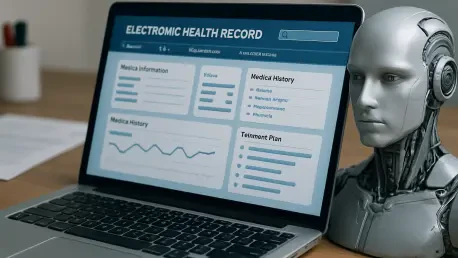
Imagine a remote village in Sub-Saharan Africa where a sudden fever outbreak goes unnoticed for weeks, silently spreading to neighboring communities because health workers rely on paper reports that take days to reach national authorities. This scenario, far too common across the continent,

Picture a world where a patient’s health crisis is predicted and prevented before it even happens, or where a rural hospital never struggles to find qualified staff during a sudden surge in demand. This isn’t a distant dream but a tangible reality taking shape in healthcare today. Across the globe,

Imagine a primary care physician starting their day, not buried under a mountain of paperwork, but instead spending meaningful time with patients, thanks to technology that anticipates their needs and streamlines their tasks. This is no longer a distant dream but a growing reality with the

Imagine a hospital where a single delayed document can stall a life-saving surgery or postpone critical test results for days. In today's fast-paced healthcare environment, such delays are not just inconvenient—they’re dangerous. Fax technology, a seemingly outdated tool, still anchors much of

James Maitland has spent his career stitching together robotics, sensors, and cloud intelligence to solve real problems at the bedside. That blend of hands‑on engineering and clinical pragmatism shows up in how he talks about seizure detection for the most fragile patients—newborns, including

As virtual visits replace waiting rooms and care plans flow through apps and analytics, the measure of reliable medicine increasingly rests on whether sensitive health data stays protected, is explained plainly, and is handled with respect that matches clinical standards of care. Patients judge